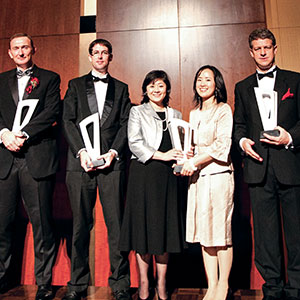The Universal Declaration of Human Rights, ratified in 1949, recognises freedom of expression as a human right. Article 19 states:
“Everyone has the right to freedom of opinion and expression; this right includes freedom to hold opinions without interference and to seek, receive and impart information and ideas through any media and regardless of frontiers”.
The French satirical magazine Charlie Hebdo argues its right to pursue such freedom by publishing cartoons that lampoon aspects of Islam.
Although it has to be recognised that its satirists also target Judaism, Christianity and a host of other orthodoxies, in the current global climate of radicalised Islam there is, perhaps, some credibility to the claim that some self-restraint would be preferable to outright provocation.
That is in no way an attempt to excuse the diabolical attack on the magazine’s headquarters or the evil slaughter of its staff. Indeed, there is an understandable view that to capitulate is to demonstrate weakness.
However, the International Covenant on Civil and Political Rights, ratified in 1966, recognises that sometimes controls may be necessary:
“The exercise of the rights . . . carries with it special duties and responsibilities. It may therefore be subject to certain restrictions . . . necessary for respect of the rights or reputations of others, and for the protection of national security or of public order (ordre public), or of public health or morals”.
Until very recently, this struggle to confront radicalised Islam has felt somewhat remote from these shores. That idea is no more.
Two Japanese citizens, who recently were taken hostage by IS, appear to have been murdered after the Japanese government refused to meet the demands of their kidnappers. Some people are now questioning when the terror will visit Japan itself.
The Japanese government most properly has been circumspect in its statements regarding the hostage situation. Were the demands of the US$200mn ransom considered, discussed or negotiated?
It is surely significant that this amount is exactly what Prime Minister Shinzo Abe recently pledged in order to help the international fight against terrorism. However, press conferences have been noticeably silent on the details, and journalists have been noticeably reticent to press for answers.
Part of the reason for that must surely be the passing, on 6 December, 2013, of the Act on the Protection of Specially Designated Secrets (tokutei himistu no hogo kansuru horitsu), which effectively gives the government the right to decide what is or is not an official secret.
This is a measure that Abe has been keen to force through the Diet. Interestingly, his grandfather, Shinsuke Kishi, when he was prime minister (1957–60), sought to introduce a similar measure but the pubic protests were so strong that he had to give up. Abe has fared better, in part because this generation does not recall the era of the “thought police”.
The new law seeks essentially to give the government greater control of the media: journalists face the threat of prosecution if they breach it.
But here’s the rub: the law does not set out limits or definitions. Officials can decide at any time what they determine to be a secret. This has the effect of making self-censorship on the part of the press all but inevitable.
Japan’s reliance on the kisha kurubu (press club) system—under which journalists have access to politicians in exchange for restraint in their criticism—has long been a thorn in the side of foreign reporters.
But, before the new law came into force, this system largely had been an informal arrangement between media organisations and the establishment.
Now there are legal constraints. What about the people’s right to know and the fundamental rule that government information belongs to the people? The rights to freedom of speech, press and other forms of expression are guaranteed under the Japanese Constitution.
In theory, we are all at risk. Officials who might, once upon a time, have spoken of goings on in their departments will now weigh even more carefully whether or not they can speak.
There has always been an argument that Japan’s official voice has lacked transparency. The new measures suggest that transparency now is even less likely.






